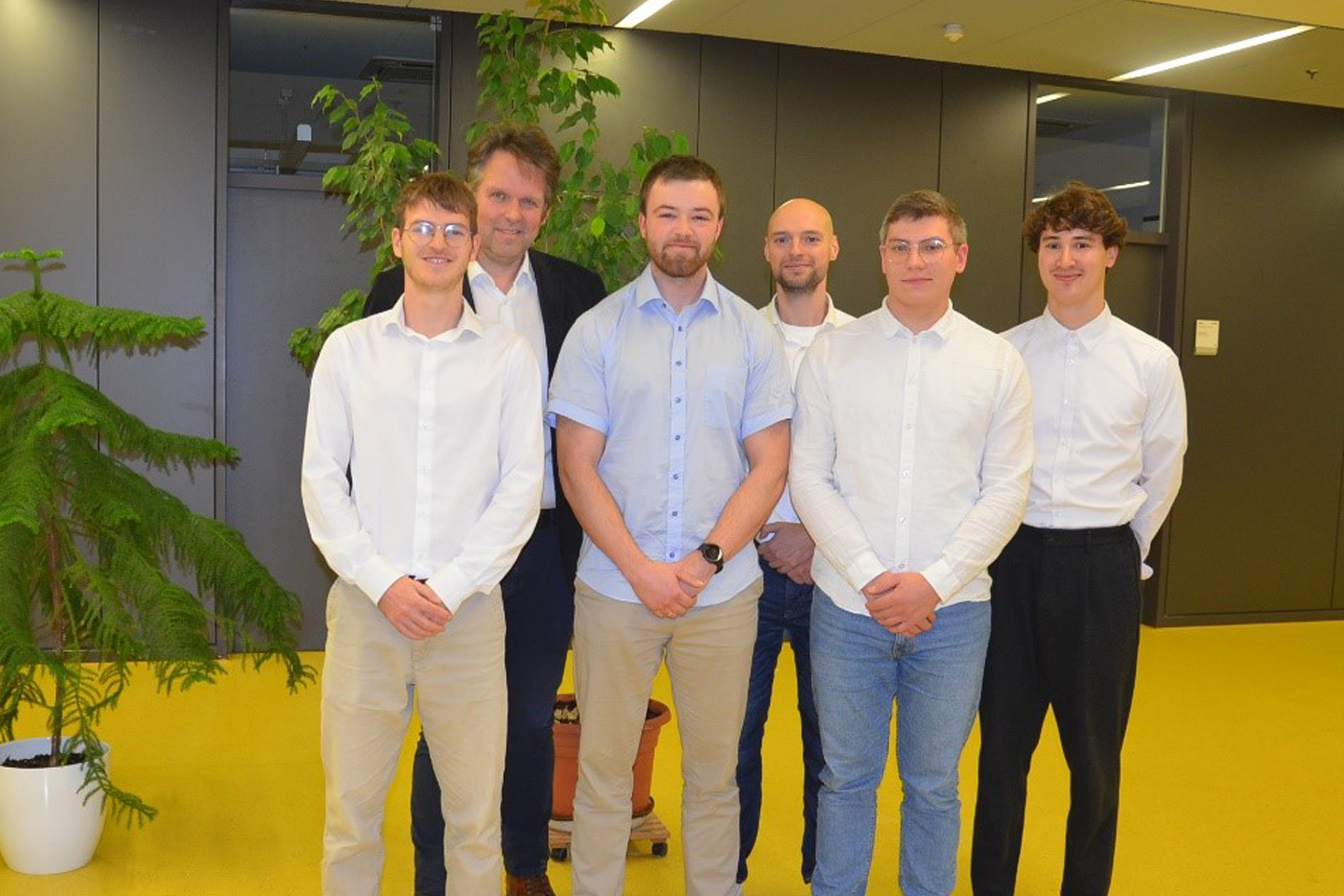The ValidFloatingPV project of the Faculty of Engineering is developing a large-scale demonstrator for floating solar systems (floating PV) with floating bodies made from disused rotor blade segments.
In the coming decades, wind turbine operators will generate large quantities of fibre composite waste from decommissioned turbines at the end of their permitted service life. To date, there is no sustainable, economic strategy for creating value from these waste streams in the sense of a complete system consisting of a circular economy, waste treatment and suitable recycling technologies. In the EU-funded EuReComp research project, HTWK Leipzig has developed so-called repurpose strategies, the core idea of which is to reuse undamaged or slightly damaged parts of the discarded rotor blades in new applications. These research results will now be validated from January 2025 in the ValidFloatingPV project funded by the Sächsische Aufbaubank (SAB) to determine their economic viability.

"In the validation project, we decided to use segments from disused rotor blades as floats for floating solar systems, so-called floating PVs. This repurposing solution promises considerable potential, as it is expected to reduce the material costs for floats and at the same time help to conserve resources. In the project, we will develop a large-scale demonstrator for a floating PV and test it under real conditions," says Philipp Johst, head of the newly founded Composite Circularity Lab at HTWK Leipzig.
The validation project also lays the foundation for the possible establishment of a start-up specialising in the manufacture and sale of products made from reused rotor blade materials. "Over the next 18 months, we will be working closely with the HTWK's start-up consultancy 'Startbahn 13' to examine whether our repurpose solutions can be transferred to a spin-off. One focus will be on evaluating the market opportunities for floating PV with floats made from repurposed rotor blade segments. The aim is to validate a sustainable and economically attractive solution that can be used on a large scale in the long term," says project manager Prof. Robert Böhm, summarising the idea behind the validation project. The project will run until May 2026 and will be carried out in the Composite Circularity Lab at the Eilenburger Straße campus.